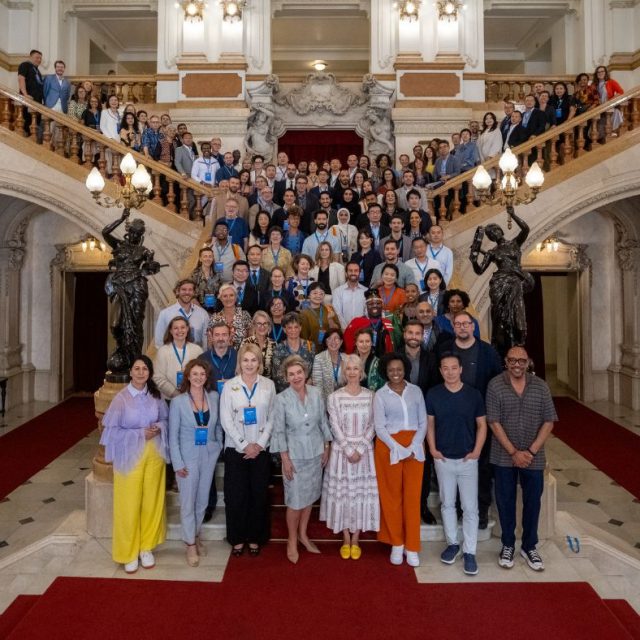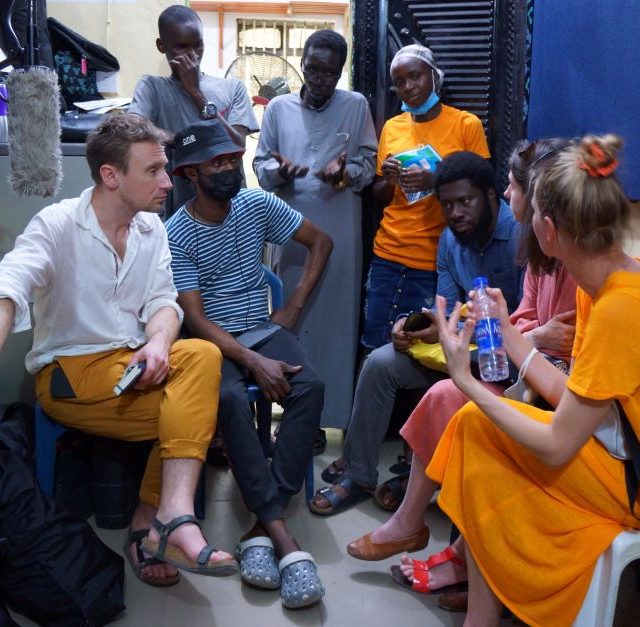
Cultural globalization represents the intricate web of interactions wherein diverse cultures influence one another through the diffusion of ideas, commodities, and practices across the globe. It embodies a duality—facilitating cultural exchange while simultaneously raising concerns about cultural homogenization. This report explores various aspects of popular cultures and their global interactions, laying out the complex landscape of influences and exchanges that characterize contemporary society.
The Influence of Technology on Cultural Exchange

The rapid advancement of technology, particularly in communications and digital media, has significantly propelled the globalization of culture. In today's interconnected world, ideas and cultural expressions can traverse borders with unprecedented speed and reach. This technological landscape includes the internet and social media, which serve as critical platforms for sharing and disseminating cultural content. As noted, 'technological advancements, such as the internet and social media, have revolutionized the way we communicate and connect with others'[3]. This not only facilitates cultural interactions but also allows individuals to express their cultural identities on a global scale.
Streaming services have also transformed media consumption by offering personalized experiences to viewers, making international content easily accessible. This, combined with the rise of influencers who shape societal trends through their online presence, has created a unique blend of cultural expressions that resonate globally. For instance, individuals are increasingly attracted to content created by peers rather than traditional media, reflecting a shift in cultural consumption patterns[6].
Nostalgia and Cultural Resurgence

While technological innovation drives cultural globalization, a countertrend has emerged, characterized by a resurgence of nostalgia. In 2024, the revival of nostalgic aesthetics, from fashion to cinematic reboots, is prevalent. Nostalgia serves as a bridge connecting past and present cultures, offering comfort amidst the rapid changes of modern life[2]. Films and series that evoke previous decades are drawing audiences, indicating a collective yearning for simpler times in a complex world.
This phenomenon can be observed in various entertainment formats, leading to a blending of historic and contemporary elements. The cultural landscape thrives on reinventions of classic franchises, illustrating how the nostalgia wave effectively interacts with modern storytelling methods. For instance, many high-grossing films in recent years have leaned on the familiar narratives of earlier generations, showcasing a tendency to return to established cultural touchstones[8].
Cultural Fusion in a Globalized Economy

The interactions between popular cultures also manifest in economic terms. Globalization has led to the increased fusion of various cultural practices, particularly in culinary traditions and fashion—where influences from one culture are assimilated and reinterpreted in another. As noted, 'cultural fusion emerges as a defining characteristic of 2024 pop culture,' highlighting diverse influences that converge to create rich, multicultural experiences[2]. This is evidenced by the global popularity of hybrid cuisines and fashion trends that blend traditional elements from various cultures.
Furthermore, cultural globalization is closely intertwined with multinational corporations, which play a pivotal role in this exchange. These corporations drive consumer culture around the world by promoting products that resonate with a diverse audience. Fast-food chains and fashion brands exemplify how local customs and preferences can become globalized, though this process can sometimes lead to cultural imperialism, where dominant cultures overshadow local identities[3][4].
The Role of Youth and Grassroots Movements

The influence of younger generations on global cultural interactions cannot be underestimated. Young people today are significantly more engaged in social and environmental activism, utilizing digital platforms to voice their demands for inclusivity and sustainability[7]. This activism further enriches the cultural tapestry, as youth advocate for diverse representation and challenge traditional norms, reflecting a transformative shift in societal values.
Such grassroots movements are often supported by larger organizations and NGOs that promote cultural preservation while embracing globalization. For instance, efforts to protect indigenous cultures and practices highlight how local traditions can be preserved and celebrated amidst global influences[1]. The rise of the 'creator economy,' driven by platforms like TikTok and YouTube, also showcases how emerging voices from various cultures are gaining recognition, allowing for the democratization of cultural production and expression[6].
The Challenges of Cultural Homogenization

Despite the rich interactions facilitated by global cultural exchange, concerns surrounding cultural homogenization remain prominent. The fear of losing unique cultural identities in the face of overwhelming global influences is palpable. Powerful cultural forces can overshadow local traditions, leading to a narrowing of cultural diversity[5]. The proliferation of Western media and consumer goods, in particular, can marginalize local cultures, as evident in how global brands shape consumer preferences and lifestyle choices[3][8].
To counteract this erosion, it is crucial for individuals and communities to actively engage with their cultural heritage while participating in the broader global dialogue. Efforts to promote local traditions and expressions become essential in maintaining cultural diversity in an increasingly interconnected world.
Conclusion: Embracing Cultural Interactions

The interplay of popular cultures on a global scale presents both opportunities and challenges. Technology fosters unprecedented connectivity and cultural exchange, while nostalgia urges a return to familiar roots. Youth activism and grassroots movements contribute vital energy to these interactions, advocating for diversity and representation in global narratives.
As the world navigates through 2024 and beyond, striking a balance between embracing global influences and safeguarding local identities will be crucial. Recognizing the dynamic nature of cultural globalization encourages a more nuanced understanding of how societies can thrive amid diversity. Engaging in this global cultural conversation not only enriches individual experiences but also fosters a more inclusive and equitable future for all cultures involved.
Get more accurate answers with Super Pandi, upload files, personalized discovery feed, save searches and contribute to the PandiPedia.
Let's look at alternatives:
- Modify the query.
- Start a new thread.
- Remove sources (if manually added).